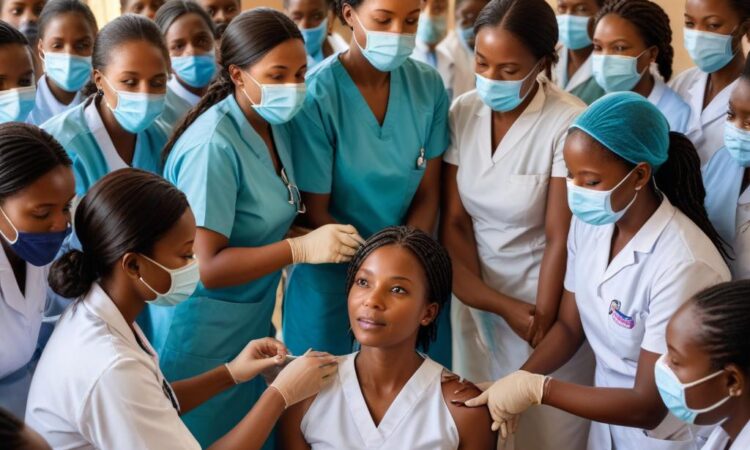7: Access to Essential Medicines and Vaccines
Access to essential medicines and vaccines is a critical determinant of global health equity and sustainable development. The disparities in access are stark, with significant discrepancies between high-income countries and low-income and middle-income countries (LMICs). These disparities are driven by a complex interplay of factors, including economic constraints, weak health systems, geographical barriers, and regulatory hurdles. Addressing these challenges requires a multi-faceted approach involving governments, international organizations, pharmaceutical companies, and civil society.
Economic Constraints
The high cost of medicines and vaccines is a major barrier to access, particularly in LMICs where a significant portion of the population lives in poverty. Many essential medicines and vaccines are unaffordable for individuals and families, forcing them to forgo treatment or prevention, leading to preventable illness and death. This economic burden disproportionately affects vulnerable populations, including women, children, and the elderly.
Generic medicines, which are bioequivalent to branded medicines but significantly cheaper, offer a crucial pathway to increasing affordability. However, intellectual property rights and regulatory processes can impede the production and distribution of generic medicines, limiting their availability in many parts of the world. International collaboration and policy reforms are crucial to fostering a more competitive and affordable generic market.
Weak Health Systems
Weak health systems in LMICs often lack the infrastructure, personnel, and logistical capacity to effectively deliver essential medicines and vaccines to the population. This includes inadequate storage facilities for temperature-sensitive vaccines, insufficient trained healthcare professionals to administer them, and limited transportation networks to reach remote communities. Strengthening health systems requires significant investment in infrastructure, training, and technology.
Furthermore, inadequate health information systems can hamper the effective tracking and monitoring of medicine and vaccine supply chains. Real-time data on vaccine stocks, usage, and coverage are essential for efficient distribution and to anticipate and address potential shortages. Investing in robust information systems is a crucial step in improving access.
Geographical Barriers
Geographical barriers, particularly in remote and underserved areas, pose significant challenges to accessing essential medicines and vaccines. Poor infrastructure, limited transportation networks, and challenging terrains make it difficult to deliver these essential health interventions to those who need them most. Innovative approaches, such as mobile clinics and drone delivery systems, are being explored to overcome these geographical challenges.
Furthermore, conflict and instability in many regions further exacerbate these challenges, disrupting supply chains and hindering access to healthcare services. Ensuring safe and reliable delivery routes in conflict-affected areas requires close coordination between humanitarian organizations, governments, and international partners.
Regulatory Hurdles
Complex and burdensome regulatory processes can delay the registration and approval of essential medicines and vaccines, limiting their availability. Streamlining these processes and harmonizing regulatory standards across countries can expedite the market entry of essential medicines and vaccines, enhancing access.
Furthermore, stringent regulatory requirements can also make it challenging for generic manufacturers to enter the market, thereby limiting competition and keeping prices high. Reforming regulatory frameworks to facilitate the entry of generic medicines can significantly improve affordability and access.
International Collaboration
International collaboration is crucial in addressing the global challenge of access to essential medicines and vaccines. International organizations, such as the World Health Organization (WHO), play a vital role in coordinating global efforts, providing technical assistance, and advocating for policy changes. Developed countries can provide financial and technical support to LMICs to strengthen their health systems and improve access to essential medicines and vaccines.
Innovative financing mechanisms, such as global health funds and international partnerships, can mobilize resources to support the development, production, and distribution of affordable medicines and vaccines. These partnerships can leverage the expertise and resources of various stakeholders, creating a more coordinated and efficient approach to addressing the challenge.
Role of Pharmaceutical Companies
Pharmaceutical companies have a crucial role to play in ensuring access to essential medicines and vaccines. Developing affordable and accessible medicines and vaccines is crucial for fulfilling their social responsibility and contributing to global health equity. Innovative pricing strategies, such as tiered pricing based on country income levels, can help make medicines and vaccines more affordable in LMICs.
Furthermore, pharmaceutical companies can collaborate with LMIC governments and international organizations to build local manufacturing capacity, ensuring sustainable access to medicines and vaccines. This includes technology transfer, training, and capacity-building initiatives that enhance self-sufficiency in the production of essential health products.
Civil Society Engagement
Civil society organizations play a critical role in advocating for improved access to essential medicines and vaccines. These organizations can raise public awareness, hold governments accountable, and promote policy changes that improve access. They can also provide crucial support to communities and individuals in accessing essential health services.
Their advocacy efforts can focus on increased funding for global health initiatives, improved transparency in drug pricing, and stronger regulatory frameworks to ensure equitable access. Civil society participation is crucial for ensuring that the voices of affected communities are heard and addressed.
In conclusion, addressing the challenge of access to essential medicines and vaccines requires a concerted and multi-faceted approach. It involves strengthening health systems in LMICs, addressing economic barriers, overcoming geographical challenges, reforming regulatory processes, fostering international collaboration, promoting the role of pharmaceutical companies, and engaging civil society organizations. Only through a collective effort can we ensure that everyone, regardless of their income or location, has access to the essential medicines and vaccines they need to live healthy and productive lives.
This is a complex issue with no easy solutions. Continued research, innovation, and collaboration are crucial in finding sustainable and equitable solutions to ensure global access to essential medicines and vaccines for all.
Further research and exploration are needed to fully understand the intricacies of this issue and to develop comprehensive and effective strategies for addressing the various challenges involved. This includes in-depth analysis of individual country contexts, innovative financing models, and the ongoing evaluation of existing interventions.
The ultimate goal is to create a world where access to essential medicines and vaccines is a fundamental right, ensuring health and well-being for all.

